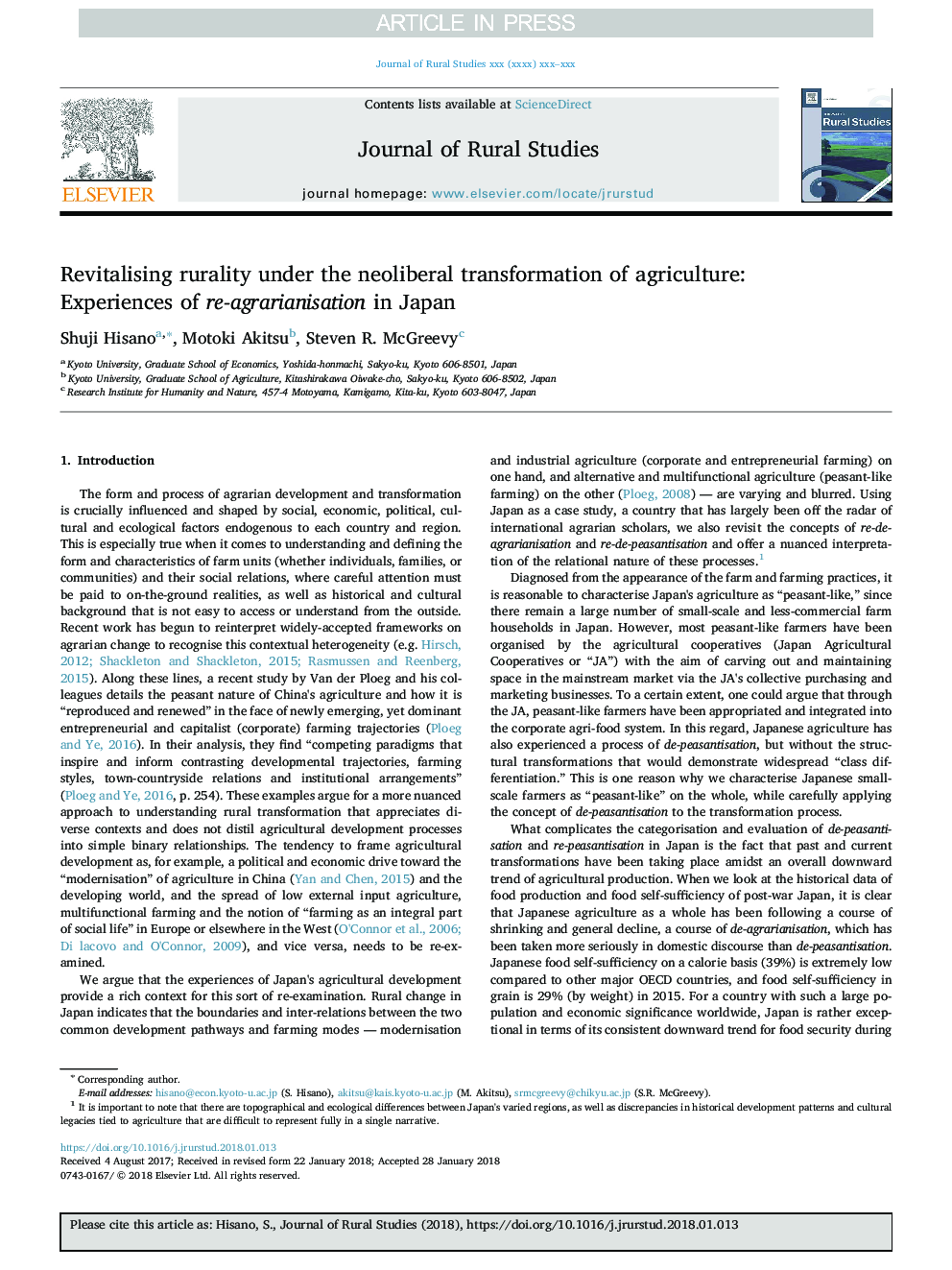| Article ID | Journal | Published Year | Pages | File Type |
|---|---|---|---|---|
| 6545258 | Journal of Rural Studies | 2018 | 12 Pages |
Abstract
Rural places are continually experiencing socio-economic change and the conceptual frameworks of re-de-agrarianisation and re-de-peasantisation were devised to explain agrarian transformations in a broad sense. Following empirical studies from other geographical contexts, this paper revisits the concepts of re-de-agrarianisation and re-de-peasantisation through the historical, theoretical, and empirical lens of agrarian and rural change in Japan. After detailing the circumstances of post-WWII agricultural reconstruction and current rural conditions, as well as outlining the development of the field of Japanese agrarian studies and a selection of the endogenous theories within to explain transformations, contemporary examples and a case study are used to provide a rich contextual account of Japan's experiences of re-agrarianisation and re-peasantisation. We find that economic, social, cultural, geopolitical, and biophysical conditions in Japan have shaped the processes of agrarian change and bring into focus particular uniqueness of endogenous responses to de-agrarianisation and neoliberal agricultural trends. In particular, socio-cultural pressure to cooperate and identify with local community and place allows “peasant-like” elements to persist despite the strong push toward entrepreneurial and corporate farming. Understanding these trajectories of the transformation of Japanese agriculture would then challenge and/or validate the applicability of commonly accepted definitions of de-re-agrarianisation and de-re-peasantisation.
Related Topics
Life Sciences
Agricultural and Biological Sciences
Forestry
Authors
Shuji Hisano, Motoki Akitsu, Steven R. McGreevy,
